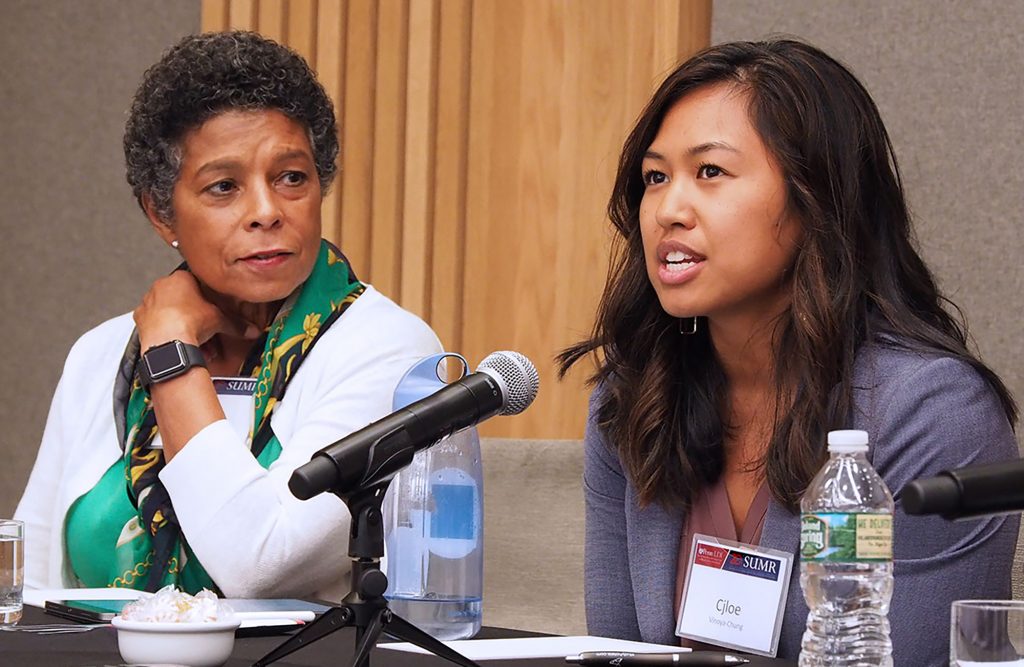
Mohamed Abdirisak
- Indiana University , Class of 2019
- Major: Psychology
- Minor: Certificate, Neuroscience
- Cohort Year: 2018
Celebrating 25 years of inspiring the next generation of health services researchers.

This summer internship introduces talented undergraduate students, with a demonstrated interest in health services, population health, and clinical epidemiology, to research in this field.
Since 2000, about 425 undergraduate students have participated in SUMR and 83% have gone on to have careers in health care, 45% have entered master’s programs, 36% have went on to medical school, and 21% have entered PhD programs. We invite you to be part of this positive change, learn about our program, and contact us if you are interested in becoming a SUMR scholar.
Starting in 2022, SUMR has expanded the program to attract scholars who want to get experience in aging research. The Get Experience in Aging Research Undergraduate Program (GEAR UP) is a 15-month sustained fellowship program in the demography and economics of aging and health care for undergraduates who are interested in a career in aging research. More information about the GEAR UP program can be found here: Get Experience in Aging Research Undergraduate Program (GEAR UP).
Founded in 2000 by Penn LDI and the Wharton School’s Health Care Management Department, the program helps advance health equity. Participating scholars work with Penn faculty on mentored research projects, attend the Academy Health Annual Research Meeting, and present on their projects at the End of SUMR Research Symposium.
Amplify the impact of the SUMR Program by donating to the LDI Expanding Health Access Program Fund.
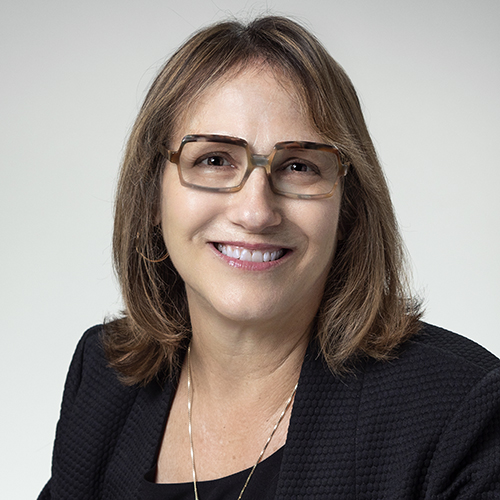
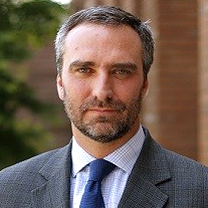
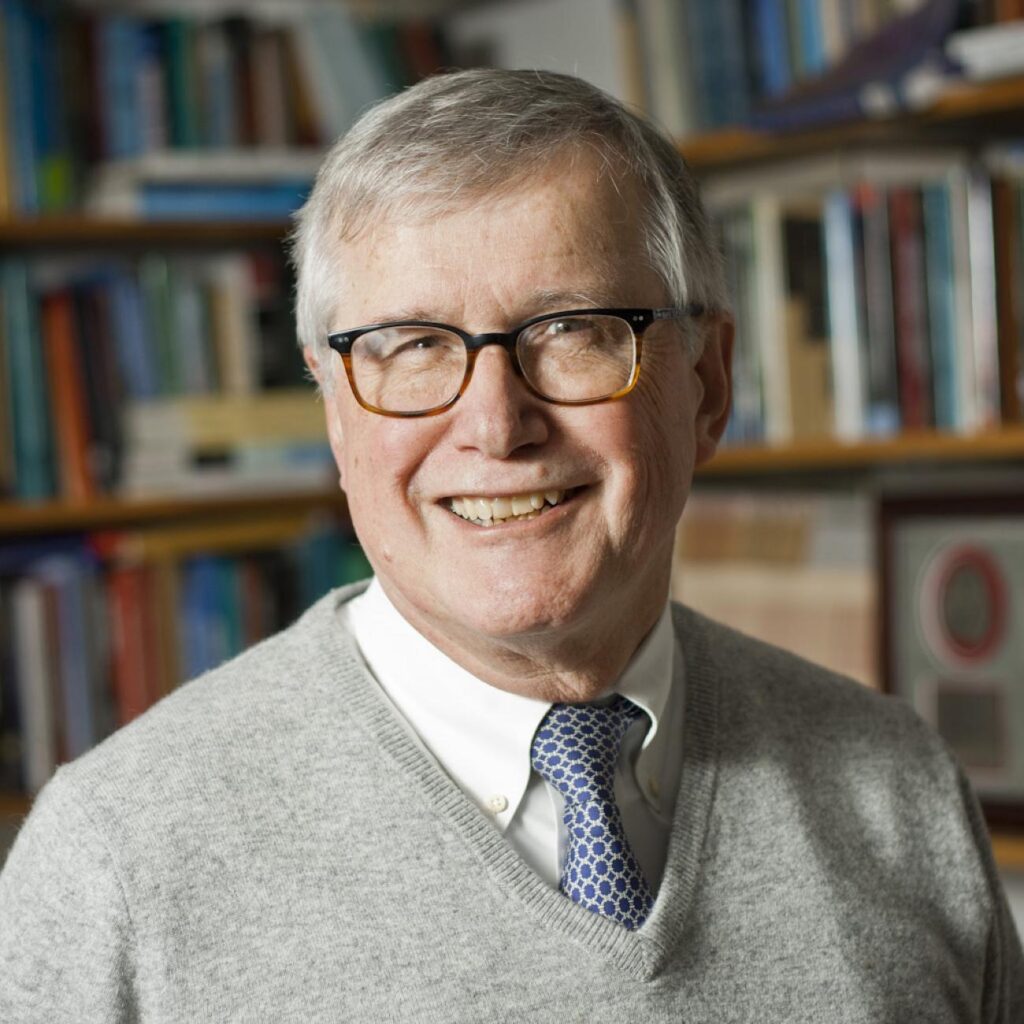
I loved my SUMR experience. The research skills I gained have served me throughout my undergraduate studies and my current position at the NIH. But perhaps most importantly, I met so many incredible and thoughtful people who I am certain are/will change the world.
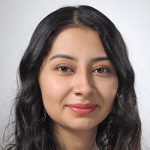
Tania Calle (2018 Cohort)
MPhil candidate in Public Health, University of Cambridge
SUMR changed my life by enabling me to understand health services research and generalize a career path through it…The relationships I formed with SUMR mentors allowed me to understand the role of mentorship—some of those mentors remain in my life even all these years later.

Ahmed Whitt, PhD, MSW (2007 Cohort)
Assistant Professor, University of Texas at Austin School of Social Work
SUMR interested me because I liked the idea of exploring a career path that would allow me to be a voice for people that don’t normally get heard in health care…Penn coordinates health services research at a very elite level and being a part of that community raised the bar for my own sense of potential and expectations.
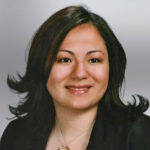
Naomi Adaniya, PhD, MPH (2005 Cohort)
Director, Health Care Fraud Unit & Opioid Fraud and Abuse Detection Unit, U.S. Department of Justice
SUMR changed the course of my career! At one point, I was considering going to medical school or training to be a physician researcher. My SUMR experience was an immersive introduction to the world of health policy and health economics research. I was introduced to important mentors and supportive friends who encouraged me to pursue my passion for research.

Mei-Lynn Hua (2015 Cohort)
PhD candidate, Health Care Management and Economics, The Wharton School
SUMR has had a handprint on every single step in my career; I continue to work with many of the investigators that I met in SUMR over 10 years ago, and their colleagues, who have written letters of recommendations for me and who I have grants and publications with.

Lori Dean, ScD (2001 Cohort)
Associate Professor of Epidemiology, Johns Hopkins Bloomberg School of Public Health
SUMR opened up a new world of research possibilities I never knew existed before, completely changing the course of my education and future career and providing me the opportunity to jump both feet first into health services research.

Randy Burson (2013 Cohort)
MD/PhD candidate in Anthropology, University of Pennsylvania
Because of SUMR, I was granted exposure to world-class faculty and other professionals who are aligned with health care, scientific research, and education. After SUMR, I plan to pursue graduate studies in the public health field, with a concentration in health management and policy, focused on vulnerable populations. SUMR has definitely impacted my life for the better!

Amilcar DaSilva (2021 Cohort)
Hunter College, Class of 2022
The program is open to rising undergraduate sophomores, juniors, and seniors interested in exploring the field of health services research.
The SUMR 2025 program will run for 12 weeks, beginning May 27, 2025 and ending on August 15, 2025.
The GEAR UP 2025 program will run for 15 months concurrently with SUMR. Those who wish to apply for GEAR UP should complete a SUMR application and indicate in the application form your desire to be considered for GEAR UP.
The SUMR and GEAR UP application timeline will be the same.
Once you click the link to apply to “2025 Summer Undergraduate Mentored Research Program/Get Experience in Aging Research Undergraduate Program”, you will be prompted to sign in or create an Interfolio/Dossier account. Interfolio/Dossier is the platform through which you will upload various parts of your application and allow you to track the progress of your application to SUMR/GEAR UP. If you are creating a new Dossier account, make sure to select the free option. You can also create/sign into a Dossier account here.
We recommend that you begin the application process early as it may take longer than you would expect. Allow enough time for completing your online application, and gathering and submitting all of your materials, including two references.
In addition to the online application form, we also require:
Upload your resume and unofficial college transcript to Dossier.
To request letters of recommendation through Dossier, go to the Letters tab. In the upper right corner, click on “+ Request a Letter” and fill out the contact information for your two references (you may have to “Add New Contact” for each of the two references).
Only complete applications will be reviewed. The top 20% of the applicant pool will be selected for interviews and will be contacted to schedule a phone or in-person interview. A final admission notice will be sent to interviewed applicants within two weeks of the interview and to non-interviewed candidates at the time of interview decisions.
No, please fill out the full application using the link specified beginning in October 2024. Applications received through Handshake will not be accepted.
Yes, you will be notified as soon as you submit your application that is was received.
Two, as specified under “Required Application Materials.”
No, but SUMR/GEAR UP provides discounted housing near campus.
There are many affordable housing options available during the summer in Philadelphia. We strongly recommend utilizing our provided subsidized housing, so you are housed with other SUMR/GEAR UP Scholars. However, you can search for summer sublets through off campus housing sites, Facebook groups, or rooming with other SUMR/GEAR UP scholars.
No, we suggest that you request a stipend from your university if transportation will be an issue.
All rising undergraduate sophomores, juniors, and seniors interested in exploring the field of health services research are open to apply. Program applicants should have a demonstrated interest in health care and strong quantitative skills. Prospective participants do not have to make a commitment in advance to attend graduate school to be accepted into the program, but an academic or research career should be something they are considering. A committee of Penn faculty selects each year’s SUMR/GEAR UP scholars from the highly competitive applicant pool.
For more info about GEAR UP, please contact Joanna Kim.
SUMR/GEAR UP scholars earn $20/hour during the summer months for a time commitment of 40 hours/week. Students work with their mentors to devise their summer schedule.
No.
Visit our SUMR Scholars page to learn about the current and past cohorts.
Visit our GEAR UP Scholars page to learn about the current cohort.
Complete this Mentor Application by February 15, 2025, or contact Joanne H. Levy, MBA, MCP, Founding Director, SUMR and Joanna Kim, MPH, for GEAR UP.
Please contact Joanne H. Levy, MBA, MCP, Founding Director, SUMR and Joanna Kim, MPH, Project Manager for GEAR UP.
The SUMR 2025 program will run for 12 weeks, beginning May 27, 2025 through August 15, 2025.
The GEAR UP 2025 program will run for 15 months concurrently with SUMR. Those who wish to apply for GEAR UP should complete a SUMR application and indicate in the application form your desire to be considered for GEAR UP.
Complete this Mentor Application by February 15, 2025 or contact Joanne H. Levy, MBA, MCP, Founding Director, SUMR and Joanna Kim, MPH, Project Manager for GEAR UP.
In 2025, LDI received a landmark $3.5 million gift to establish the Davis Family SUMR Program Endowment Fund, with an additional $1 million matching challenge from the Leonard and Sophie Davis Fund.

For 25 years, SUMR has championed diversity in health care. Visit The Wharton School page to learn more about our journey and vision for the future.

In 2019, we celebrated two decades of SUMR. Visit the anniversary page to see how we celebrated the history and future of the program.
